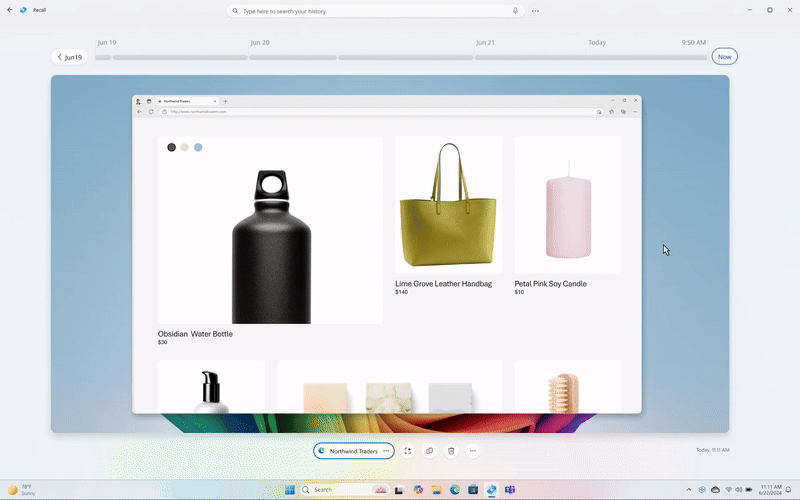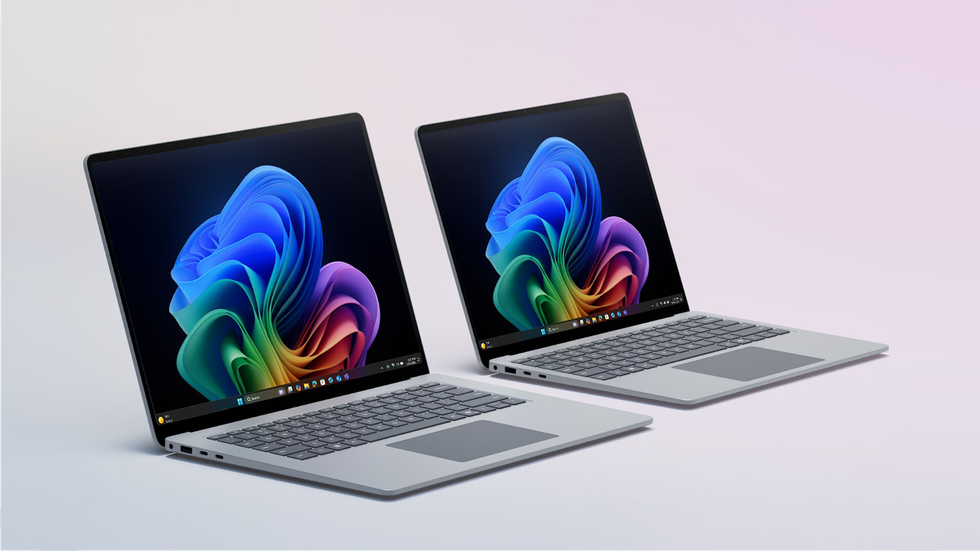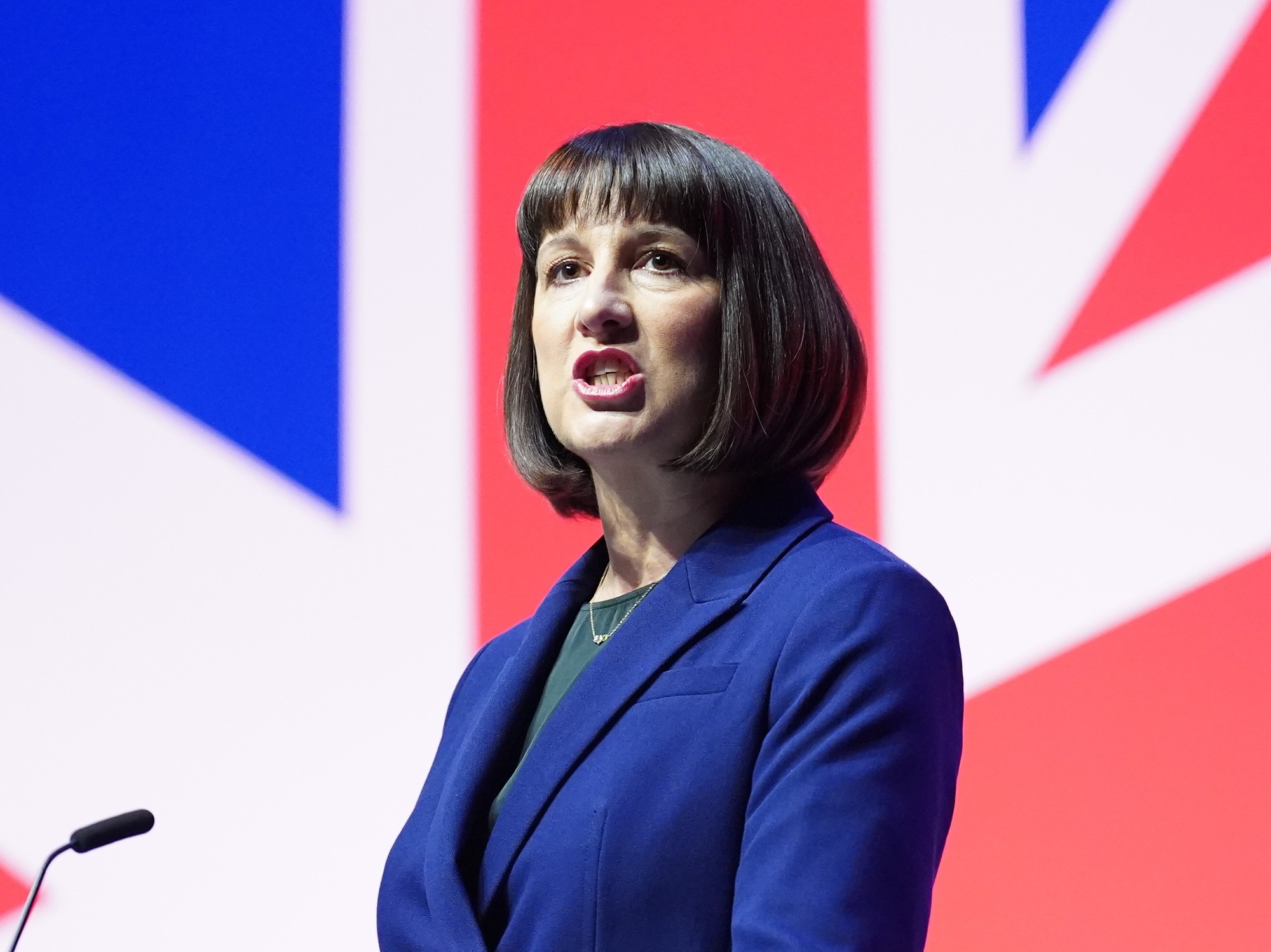Recall is the standout feature coming to Windows 11, provided you've got a laptop or desktop PC that meets the Copilot+ PC criteria announced by Microsoft at its Surface event this week
Information Commissioner’s Office is "making inquiries" about new Recall feature
- Microsoft announced Recall is coming to Copilot+ PCs this summer
- It takes screenshots of everything you do on-screen
- Snapshots are analysed by AI on-device so they can be searched
- Clicking on the snapshot will load-up the files you were working on
- Privacy campaigners have flagged concerns with the AI feature
Don't Miss
Most Read
Trending on GB News
Hours after promising to never destroy the human race with its Artificial Intelligence, the standout new AI feature coming to Windows 11 has been branded a "privacy nightmare" by campaigners and sparked an investigation from the UK's data protection watchdog.
Dubbed Recall, the flashy new trick was announced alongside the first Copilot+ PCs that'll enjoy exclusive functionality in Windows 11 earlier this week.

Recall is the headline feature of this slate of Copilot+ PCs, which lets you scroll back through everything that has happened on your Windows 11 machine and jump back in time with a click. Everything is searchable as AI has trawled through the images and text on-device
MICROSOFT PRESS OFFICERecall takes screenshots of everything you're doing on-screen and uses on-device AI to analyse the contents and make text and images searchable using the Copilot AI chatbot.
For example, if you know you were looking at flights to Spain in the last month — you could search for the destination to find the exact webpage. With a single click, Windows 11 will summon the document, picture, video or webpage to pick up where you left off.
You can also scroll back in time through the screenshots, which are captured periodically throughout the day and can be stored for months at a time.
Recall won't take screenshots whenever you're using a private browsing mode, like Incognito Mode in Google Chrome, Microsoft has reassured PC owners. It's also not enabled by default, so you'll need to actively dive into the Settings menu and switch on the feature.
Despite these assurances, the UK’s data protection watchdog is “making inquiries” with Microsoft over the new feature that can take screenshots every few seconds.
The Information Commissioner’s Office (ICO) told the BBC that firms must “rigorously assess and mitigate risks to peoples’ rights and freedoms” before bringing new products to market. The data protection regulator said it was “making inquiries with Microsoft to understand the safeguards in place to protect user privacy”.
Privacy campaigners have reacted strongly to the announcement of Recall.
"This could be a privacy nightmare," said Dr Kris Shrishak, an adviser on AI and privacy, told the BBC. "The mere fact that screenshots will be taken during use of the device could have a chilling effect on people."
Jen Caltrider, who serves as Program Director for the *Privacy Not Included team at Mozilla, has warned that Recall would allow anyone with access to your laptop or desktop PC to a treasure-trove of personal information since it contains a categorised list of recent activity.
Caltrider cautioned: "[This includes] law enforcement court orders, or even from Microsoft if they change their mind about keeping all this content local and not using it for targeted advertising or training their AIs down the line."
Microsoft says Recall will not censor or wipe information from the screenshots that it takes, even when passwords or bank account details are visible on-screen.
In a blog post about the new functionality, which will arrive with the new Surface Laptop next month, the US company wrote: "Recall leverages your personal semantic index, built and stored entirely on your device.
"Your snapshots are yours; they stay locally on your PC. You can delete individual snapshots, adjust and delete ranges of time in Settings, or pause at any point right from the icon in the System Tray on your Taskbar.
"You can also filter apps and websites from ever being saved. You are always in control with privacy you can trust."
 Recall and a number of other AI features will be exclusive to Windows 11 running on so-called Copilot+ PCs, including the newly-announced Surface Laptop 7th Edition, pictured above MICROSOFT PRESS OFFICE
Recall and a number of other AI features will be exclusive to Windows 11 running on so-called Copilot+ PCs, including the newly-announced Surface Laptop 7th Edition, pictured above MICROSOFT PRESS OFFICE But Jake Moore, global cybersecurity adviser at software security firm ESET, said the creation and storage of more private data through the feature could be an enticing prospect for cyber criminals.
“Enabling a feature which has the ability to capture screen data not only offers even more data to the company behind the software but also opens up another avenue for criminals to attack,” he said.
LATEST DEVELOPMENTS
- Virgin Media reveals simple fix for 'sluggish' broadband
- New Surface Laptop is cheaper and 'faster than MacBook Air'
- Microsoft and Google promise to never develop AI that will destroy humanity
“Whilst this feature is not on by default, users should be mindful of allowing any content to be analysed by AI algorithms for a better experience.
“Although it may produce better results, there is a balance that must be kept regarding functionality versus privacy and so users must remain aware of the potential risks should any sensitive data ever become compromised. Creating and storing more private data seems unnecessary when cyber criminals continually look for any given vulnerability to exploit.”









